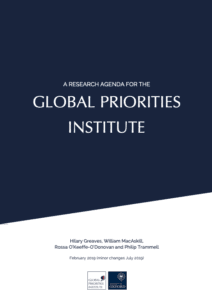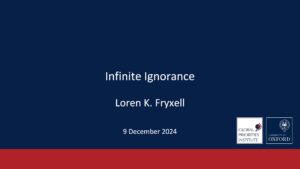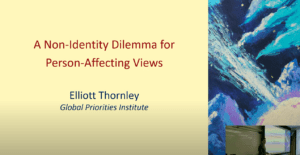GPI's research agenda
The central focus of GPI is what we call 'global priorities research': research into issues that arise in response to the question, 'What should we do with a given amount of limited resources if our aim is to do the most good?'. This question naturally draws upon central themes in the fields of economics, philosophy and psychology. Browse through GPI's research agenda to find out more.
Our papers
Economic inequality and the long-term future – Andreas T. Schmidt (University of Groningen) and Daan Juijn (CE Delft)
Why, if at all, should we object to economic inequality? Some central arguments – the argument from decreasing marginal utility for example – invoke instrumental reasons and object to inequality because of its effects…
Read MoreHow many lives does the future hold? – Toby Newberry (Future of Humanity Institute, University of Oxford)
The total number of people who have ever lived, across the entire human past, has been estimated at around 100 billion. The total number of people who will ever live, across the entire human future, is unknown – but not immune to the tools of rational inquiry…
Read MoreHow cost-effective are efforts to detect near-Earth-objects? – Toby Newberry (Future of Humanity Institute, University of Oxford)
Near-Earth-objects (NEOs) include asteroids and comets with orbits that bring them into close proximity with Earth. NEOs are well-known to have impacted Earth in the past, sometimes to catastrophic effect…
Read More



